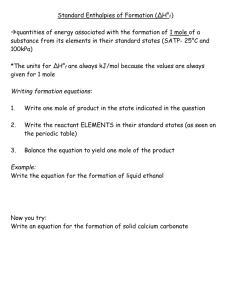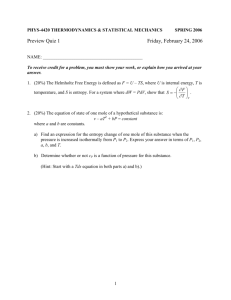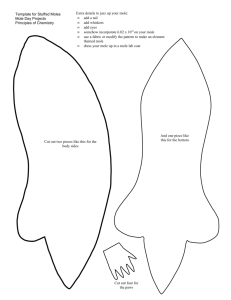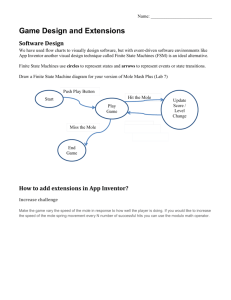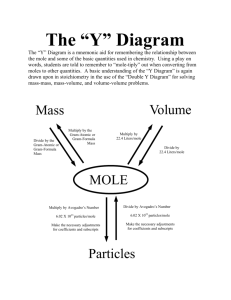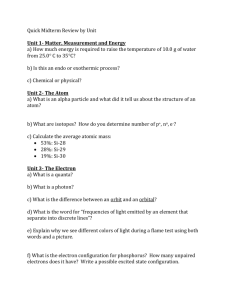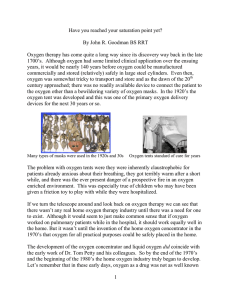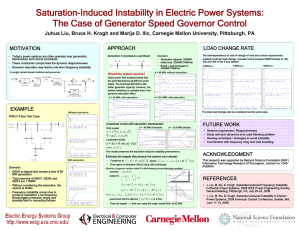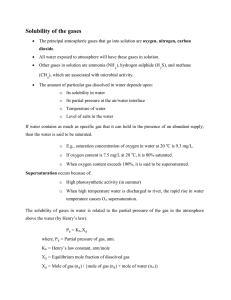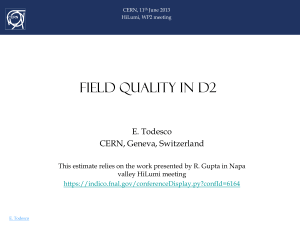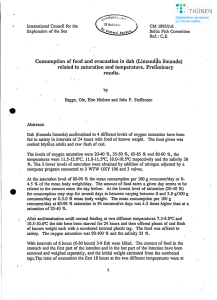REPORT WATER quality
advertisement
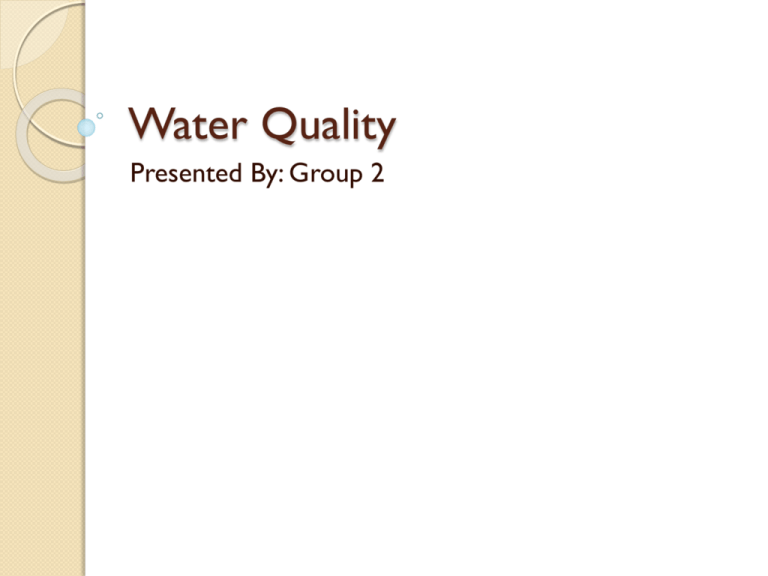
Water Quality Presented By: Group 2 River Water Quality Dissolved Oxygen (mg O2 /L) – is required to maintain a balanced community of organisms in lakes, rivers, and the ocean. Deoxygenation – the rate at which oxygen is consumed in oxidizing an oxygen-demanding waste. Reaeration – the rate at which the oxygen is resupplied from the atmosphere. Oxygen Saturation and Deficit Saturation concentration (DOsat) – the amount of oxygen that can be dissolved in water at a given temperature. Henry’s law constant (Kh) – (1.36 x 10-3 moles/L-atm at 20°C) Partial pressure of oxygen in the temperature (PO2 ) – 21 percent or 0.21 atm Formula for DOsat: DOsat = Kh x PO2 Formula for D: D = DOsat – DOact where: D = oxygen deficit DOact = ambient DO conc. from saturation Example 8.2 Determine the saturation dissolvedoxygen concentration, Dosat at 20°C. Solution: Dosat = 1.36 x 10-3 mole/L-atm x 0.21 atm = 2.85 x 10-4 mole / L Convert to mg O2/L: Dosat = 2.85 x 10-4 mole/L x 32 g O2/mole x 103 mg O2 mole O2 g O2 = 9.1 mg O2 /L Example 8.3 Determine the dissolved-oxygen deficit, D, at 20°C for a river with an ambient dissolved-oxygen concentration of5 mg O2/L. Solution: D = 9.1 – 5 = 4.1 mg O2/L Wetlands A site may be characterized as wetland if it is: (1) Is inundated and saturated with water for at least part of the year. (2) Has hydric soils (3) Supports predominantly hydrophytic plants Wetlands Serve several important functions: - water storage and flood mitigation - filtration of water and removal of 1 suspended solids, bacteria, nutrients and toxic substances - wildlife habitat - biogeochemical cycling of materials - removes substances that may impair water quality
